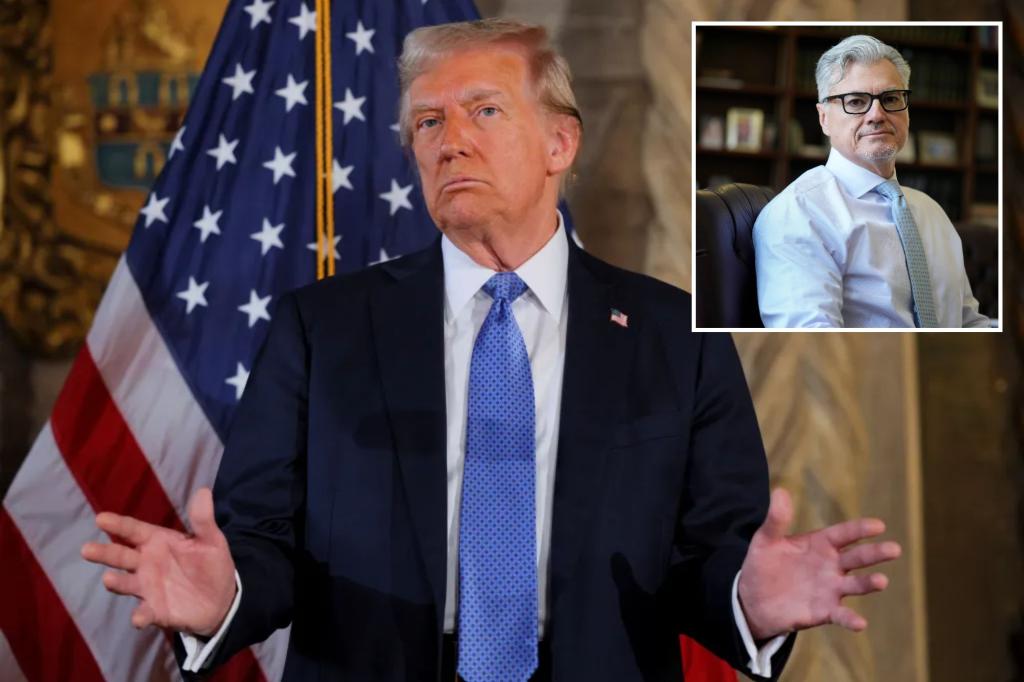Paragraph 1: The Request for a Sentencing Delay
Former President Donald Trump, facing sentencing in a hush-money case, has requested a delay in the proceedings. His legal team filed a motion seeking to postpone the sentencing scheduled for Friday, citing their intention to appeal Judge Juan M. Merchan’s recent rulings upholding the guilty verdict. Trump’s lawyers argue that their planned appeal to the Appellate Division of the state’s trial court triggers an automatic stay of proceedings. They contend that if the automatic stay isn’t granted, Judge Merchan should exercise his discretion and halt the sentencing. This request comes just days before Trump’s scheduled return to the White House, adding another layer of complexity to the legal proceedings.
Paragraph 2: The Basis of Trump’s Legal Arguments
Trump’s legal team asserts that the judge’s decisions to uphold the verdict and deny dismissal based on presidential immunity and his upcoming second term should be reversed. They maintain that established legal precedents, including a Supreme Court decision on immunity and the New York state constitution, mandate the dismissal of the case, which they characterize as a "meritless hoax" and a "witch hunt." Trump’s spokesperson, Steven Cheung, echoed these sentiments, emphasizing the perceived injustice of the prosecution. The Manhattan District Attorney’s office, responsible for prosecuting the case, has yet to comment on the latest developments.
Paragraph 3: Judge Merchan’s Perspective and the Potential Sentence
Despite Trump’s arguments, Judge Merchan has indicated his belief that concluding the case through sentencing serves the interests of justice. In his recent ruling, he suggested that an unconditional discharge is the most appropriate sentence. This would effectively close the case without imposing jail time, fines, or probation. While Judge Merchan acknowledged the demands of the presidential transition, he offered Trump the option to attend sentencing in person or virtually. This approach aims to balance the legal process with the unique circumstances of Trump’s position.
Paragraph 4: The Procedural Steps and Trump’s Reaction
Trump, along with his lawyers and the prosecution, will have the opportunity to address the court during sentencing. Following sentencing, Trump has the right to appeal the verdict, a course of action he has publicly committed to pursuing. The prospect of a former president taking office while under the shadow of a felony conviction is unprecedented. Trump has vehemently denounced the case and its potential implications, claiming on social media that upholding the verdict would "be the end of the Presidency as we know it."
Paragraph 5: The Underlying Hush-Money Case
The charges against Trump stem from an alleged scheme to conceal a hush-money payment made to adult film actress Stormy Daniels during the final weeks of the 2016 presidential campaign. The payment was purportedly intended to prevent Daniels from publicly disclosing an alleged affair with Trump. Trump has consistently denied Daniels’ claims and maintains his innocence. The case revolves around how Trump accounted for reimbursing his then-personal lawyer, Michael Cohen, who facilitated the payment to Daniels. The conviction carries a potential penalty ranging from a fine or probation to a maximum of four years in prison.
Paragraph 6: The Role of Michael Cohen and Previous Sentencing Delays
Michael Cohen, a key witness for the prosecution, previously advocated for Trump’s imprisonment. However, in light of recent developments, Cohen expressed his view that an unconditional discharge is a "judicious and appropriate" sentence. The sentencing, initially scheduled for July 11, 2024, has been postponed multiple times at the request of the defense. Following Trump’s re-election in November, Judge Merchan further delayed the sentencing to allow both sides to address the implications of Trump’s return to the presidency on the case’s trajectory.


